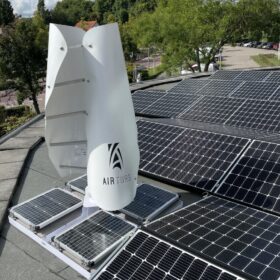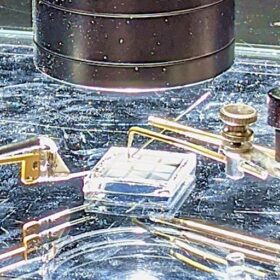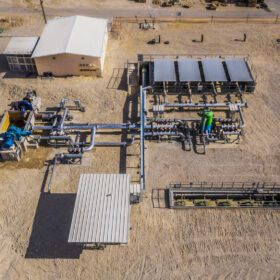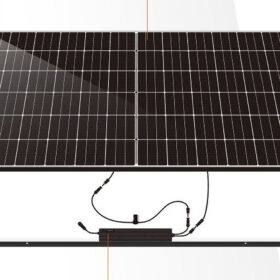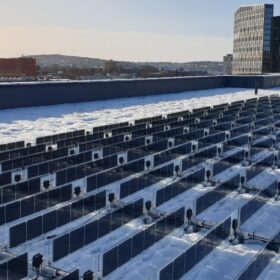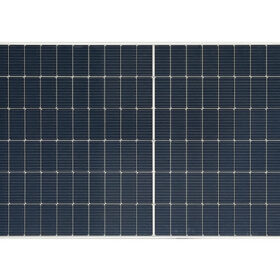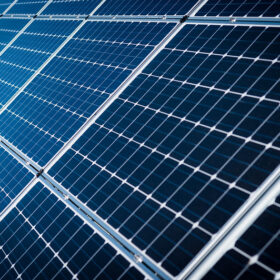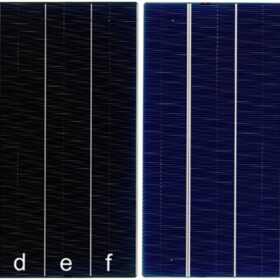PV-powered underground heat exchanger for buildings
Researchers in India have combined PV generation with heat produced by an earth-to-air heat exchanger to provide buildings with space heating and cooling. They say the proposed system could result in an annual energy gain of 8116.7 kWh.
Hybrid wind-solar power system for residential applications
Dutch startup Airturb has developed a 500 W hybrid wind-solar power system featuring a vertical axis wind turbine and a solar base hosting four 30 W solar panels. The system can be used for rooftop or off-grid applications.
Bifacial CdTe solar cell achieves record power density via film lithography
The US National Renewable Energy Laboratory (NREL) and First Solar have used cracked film lithography (CFL) to build a bifacial cadmium telluride solar cell with a power density of 20.3 mW cm−2. They claim the cell has a higher bifacial power density than any polycrystalline absorber currently manufactured at scale.
‘Least-cost’ model for compressed air energy storage
Stanford University researchers have created a model to assess how much compressed air storage capacity might be needed for the deep decarbonization of power systems, while compensating for the variability of wind and solar-based power systems. They applied the model to California’s energy system and found that compressed air could be very competitive on a dollars-per-kilowatt-hour basis.
DAH Solar unveils solar kit for balconies, rooftops
China’s DAH Solar has developed a turnkey solar system with a plug-in connection for residential applications. The kit can reach a maximum size of 2,279 mm × 1,134 mm × 32mm and weighs up to 59.8 kg.
High-latitude tests show vertical rooftop PV yields 30% more energy
Norway’s Over Easy says its pilot vertical PV system in Oslo achieved remarkable performance throughout a snowy winter. In 2022, the vertical array generated 1,070 kWh per kilowatt installed, which the company says compares to around 800 kWh per kilowatt installed for a conventional rooftop array.
Floating PV system mysteriously washes up on Hong Kong beach
A local environmental organization has published pictures of the stranded array which appeared last week on two beaches. Hong Kong’s Agriculture, Fisheries and Conservation Department is currently investigating where the installation came from.
SDN unveils 595 W solar module with 21.28% efficiency
South Korea’s SDN has developed new bifacial solar modules based on M10 wafers. It claims the new panels are the largest to be produced in South Korea.
PV product prices resume downward trend, says TrendForce
TrendForce says polysilicon will be 3.2% cheaper in March than in February. This will lead to lower wafer, cell and module prices and will effectively spur installation demand.
TOPCon shingle solar cell achieves 22.0% efficiency via thermal laser separation
Scientists from Germany’s Fraunhofer ISE and US panel maker Solaria have applied thermal laser separation and post-metallization passivated edge technology to tunnel oxide passivated contact (TOPCon) cell production. They have developed shingle PV devices that are more efficient than cells built with conventional laser scribing and mechanical cleaving methods.


